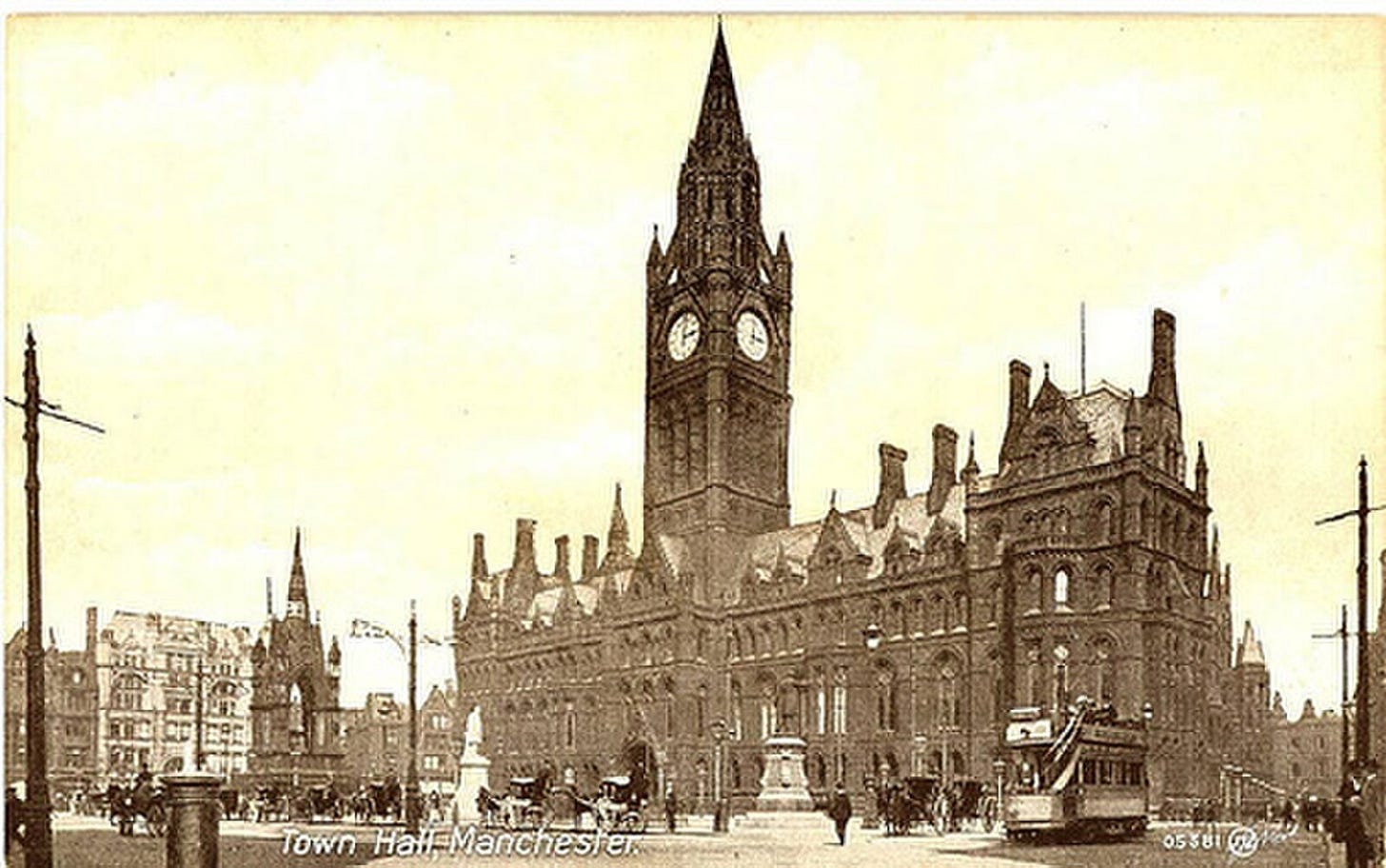The Liscard Notepaper Case
In an Edwardian divorce case described by the judge as "like a penny novelette", a Scots-born private detective's evidence wasn't enough to prove misconduct
Alexander Wishart (1865-1944) had many careers in his lifetime. From teenage agricultural labourer in his native Marykirk, Kincardine, Scotland, to metal dealer, commission agent, actor or theatrical agent, and civil servant, he regularly moved career as well as location. He claimed to have also been a policeman, a detective for a music company, and a soldier, all before becoming a private detective, although these facts can't be proved. However, for the period from 1909 to 1921, he was certainly working as a private detective, initially in Liverpool, and latterly in south London.
In 1909, he worked on his most noteworthy case - a divorce suit involving a plumber and his errant wife - but it was not a successful one for him.
Samuel Andrew Mills, the plumber in question, lived and worked in Liscard, Cheshire (part of Wallasey, on the Wirral). On 8 April 1901, age 23, he married the teenaged Alice Loder Hughes; although it was speculated that she was only 14 at the time, he insisted she was 18 (she was actually in-between the two ages, being 16 when she married).
Cowley Road, East Oxford, where Alice’s father Christopher had a butcher’s shop (photo by Kamyar Adl and used under Creative Commons)
Alice was from Oxford, the daughter of a butcher on the Cowley Road named Christopher Jesse Hughes. For unknown reasons, sometime between 1891 and 1901 he relocated his entire family from Oxford to Liscard, where he renamed himself Frederick (also the name of his eldest son), but continued in his profession. In Liscard, his younger daughter Alice met Samuel Mills, and the couple duly married.
Perhaps unsurprisingly, given her age, Alice found marriage to be rather stifling. After two years, she left her husband for three months. They then reconciled, but Samuel became frustrated and suspicious when Alice started going out dancing in the evenings, and not returning home until at least midnight. He then snooped through her purse, and found a letter from another man, making an appointment to meet her.
Alice insisted the letter was five years old, predating her marriage, but Samuel recognised the notepaper it was written on as being 'of recent make'. The marriage now failed permanently. In 1904, a deed of separation was drawn up, with Samuel taking both the children of the marriage - Samuel Arthur (b.1901 and known by his middle name) and Horace Eric Jesse (b.1903).
In 1905, Alice managed to kidnap her older child and disappeared: Samuel could not locate her. She then applied for arrears of maintenance from him, but refused to give up little Arthur when asked. Despite this, she was allowed a weekly maintenance from her husband. It was not until 1908 that Samuel finally tracked his wife down. She was living in apartments on York Street in Manchester, with a young woman named Connie Ryde. He had tracked her down with the help of Alexander Wishart.
Manchester, where private detective Alexander Wishart shadowed Alice Mills
Samuel's home in Liscard was just across the Mersey from Liverpool, where Wishart was based. The Scots detective was able to travel easily across to Manchester, where he duly tracked and shadowed young Alice Mills. He told her that he had seen her with a 'gentleman', and she admitted it, saying he was a friend. Wishart then accused her of being more than friends with him, and gave her his business card. In response, she told him:
"If I had a revolver, I would shoot you."
On the basis of Alexander Wishart's reports, Samuel Mills filed for divorce on 22 September 1908. The situation looked clearcut - at first. Alice Mills had been seen in company with a man, and despite both she and Connie Ryde only having a few shillings to their name, they had mysteriously managed to afford lodgings that cost 5 shillings each per week. The clear insinuation was that they must have had a man paying for their accommodation (Alice insisted that the money was from interest on her grandfather's estate - the reason for her going to Manchester in the first place - but her family were not from Manchester, and they were not wealthy).
Alice insisted that the money was from interest on her grandfather’s estate
However, the private detective's work was brought into question in court. It was suggested that he didn't know who Alice was to look at, and that Samuel hadn't identified her to Wishart until 12 August - a month after he filed for divorce. Wishart insisted he did know who his client's wife was, and that she had been identified to him far earlier. He initially refused to say how much he was paid by Mills to watch Alice, until the judge forced him to; he then admitted that he was paid £10, with a further £8 after he was ordered to give evidence. His pay was on the basis of a fee of half a guinea a day, which he would be paid regardless of whether he found any evidence or not. Samuel Mills, however, refuted this, saying that if Wishart found nothing out, he would not be paid.
This clearly had a bearing on who should be believed. If Wishart was only going to be paid if he found evidence, he would have a clear motive to find or fabricate such evidence. If he was getting paid regardless, he would be less likely to need to make anything up. The judge in the case noted the difference between what Wishart said and his employer's views, but seems to have believed Wishart in this case, noting that such a contract was 'always a very suspicious condition surrounding the employment of such a person [a private detective]'.
However, there were still doubts about his evidence, which Alice Mills vehemently denied, as did her housemate. Two other witnesses had their evidence also brought into question. Samuel Mills was clearly a man willing to spend good money on shadowing his wife - he had previously done so in 1904, when she had been tracked down to Widnes - and the marriage between him and Alice was certainly complex and problematic, due to her age and need for freedom, which had to be balanced with the fact that the couple had two children.
In court, the judge noted,
"It reads like a story out of a penny novelette, it seems so improbable."
He clearly felt that there was some truth to the argument that Alice would have been unable to afford her lodgings without the financial help of another man, but ultimately, decided that no misconduct had been proved (despite clear doubts about her behaviour), and that the divorce petition should be dismissed.
Alexander Wishart continued to work as a private detective in the north-west for at least four more years, although the last mention of him as such in the press comes not in relation to a case he was working on, but his own summons for illegal fishing in Cumbria. On being widowed, he then moved to London, where the 1921 census recorded him living in Plumstead and still working as a private detective. He had two children by his new partner (who claimed to be his wife, but they never married), and died in South London in 1944. Samuel Mills, meanwhile, emigrated to Australia where he died in 1922.
Alice Mills returned to her parents to live - they had moved to Liverpool - taking with her the Mills’ elder son Arthur. Who the younger son, Horace (named after one of Alice's brothers), lived with is not clear, as he did not go to Australia with his father,. However, he can be later found living in the north-east of England and working as a gardener. One wonders how he felt on not being the child his mother insisted on taking with her.






Another great post that stretches what was happening at the time.